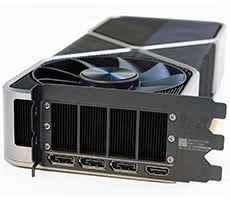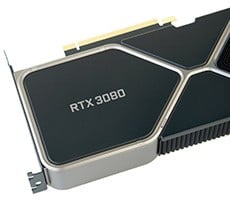Can Legacy Dual-Core CPUs Drive Modern GPUs?
Introduction, Test System
A few weeks back, we examined whether a new GPU like the GeForce GTX 660 could breathe new life into an older quad-core gaming system built in mid 2008. The answer, we concluded, was definitely yes -- but many of you of you asked us to reconsider the question, this time using a dual-core Core 2 Duo.
We've done so. And just for fun, we've added overclocked CPU results into the mix as well.
The Q6600 we originally tested was one of the best-selling enthusiast processors of its day, but dual-core chips were very much the norm. At the time, there were only a handful of games that could even take advantage of four cores and both Intel and AMD priced by core count. That's changed now, with multiple games using up to four cores.
So, can older Core 2 Duo's still keep up? Let's find out.
The System:

Our test bed, the ASUS Rampage Formula X48 Motherboard, from days of yesteryear.

EVGA's GeForce GTX 660 SuperClocked backing-up the Core 2 Duo with muscle.
The only Core 2 Duo CPU I still had on hand is an Intel E6850. It's a first-generation C2D part based on Intel's 65nm Conroe core. It's clocked at 3GHz with 4MB of L2 cache and has a 1333MHz FSB. If you were to pull Intel's full suite of Core 2 Duo consumer SKUs, the E6850 would have ranked at the upper end of the heap. Performance should be somewhere between the 45nm E7600 and E8400.
We tested the E6850 and Q6600 in the same Asus X48 Rampage Formula motherboard with 3GB of DDR2-1066. An EVGA GTX 260 and GTX 660 were used to compare graphics performance. Our overclocked figures were measured using the Q6600 (SLACR core) with its FSB bumped to 1333MHz, up from 1066MHz.
As before, we present performance figures for the GTX 260 and GTX 660. Overclocked performance with the Q6600 at 3GHz and the GTX 660 is also given. The primary question we want to answer is how much a new GPU can help the performance of an older dual-core CPU. In our default configuration, the Q6600 has twice the cores, but the E6850 enjoys a 25% clock speed advantage.
We've done so. And just for fun, we've added overclocked CPU results into the mix as well.
The Q6600 we originally tested was one of the best-selling enthusiast processors of its day, but dual-core chips were very much the norm. At the time, there were only a handful of games that could even take advantage of four cores and both Intel and AMD priced by core count. That's changed now, with multiple games using up to four cores.
So, can older Core 2 Duo's still keep up? Let's find out.
The System:

Our test bed, the ASUS Rampage Formula X48 Motherboard, from days of yesteryear.

EVGA's GeForce GTX 660 SuperClocked backing-up the Core 2 Duo with muscle.
We tested the E6850 and Q6600 in the same Asus X48 Rampage Formula motherboard with 3GB of DDR2-1066. An EVGA GTX 260 and GTX 660 were used to compare graphics performance. Our overclocked figures were measured using the Q6600 (SLACR core) with its FSB bumped to 1333MHz, up from 1066MHz.
As before, we present performance figures for the GTX 260 and GTX 660. Overclocked performance with the Q6600 at 3GHz and the GTX 660 is also given. The primary question we want to answer is how much a new GPU can help the performance of an older dual-core CPU. In our default configuration, the Q6600 has twice the cores, but the E6850 enjoys a 25% clock speed advantage.






